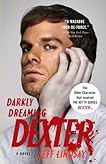 Today's article is a little special. Written by the founder and President of FSB Associates, Fauzia talks about the importance on line communities and how publishers should be swift and responsive to appeal to the "new reader" of today.
Today's article is a little special. Written by the founder and President of FSB Associates, Fauzia talks about the importance on line communities and how publishers should be swift and responsive to appeal to the "new reader" of today.Feel free to share opinions about this article. Enjoy =)
----------
I'll Take a Community With That Book, Please!
By Fauzia Burke
By Fauzia Burke
With today's search empowered readers, do we need to market and publish books differently? Does general publishing makes sense in an age of Google searches, micro communities and niche marketing?
Today's readers are tech savvy and resourceful. They know how to get the information they need and have higher expectations from publishers and authors. They don't just expect a book, they expect a community with their book.
I often hear publishers say that there are "very few brands in book publishing." But to thrive in today's competitive, niche markets, perhaps brands are exactly what we need. What readers choose to read is personal and an extension of who they are. Shouldn't their book choices be supported by a publisher, a brand that is invested in their interests?
Many small publishing companies have done an enviable job of branding themselves and building reader communities around their books. Take O'Reilly, TOR and Hay House. You may not read their books, but you know what they publish. Their communities trust them. People who share their point-of-view flock to their lists. These companies publish for a niche community, and are trusted members of their community. They provide extra resources, and often their authors are members of the community itself. TOR has even launched a bookstore to meet their readers' needs. These publishers show passion for their books and an understanding of their readers, and as such their readers reward them with loyalty.
Publishing books for the community.
Besides reader loyalty, publishing for micro communities may have other long-term benefits as well. For example, the focus would help publishers save money on marketing. Marketing through online communities is less expensive and much more powerful than trying to reach the general public and hoping to find the right match. The publisher's Web site wouldn't have to cater to a wide variety of people, it would be designed to serve the needs of a small group. Instead of expensive advertising, they could announce the book to the community that has already bought into their brand. Publishers and authors could enlist the support of the community to spread the word (which will always be the most efficient method for marketing books.) The logo on the book spine would mean the readers have a promise that the book is worth reading. The readers would know that the publisher looked at over a thousand manuscripts all on the same topic and is offering them the very best.
So are large, general publishers at a disadvantage with today's search-empowered, community oriented readers? I think so. General trade publishing is for everyone, yet there is no "everyone" out there. Readers are part of micro communities. They want good books, and they need publishers who will support their interests and passions.
The bottom line is that publishers and authors need to evolve their marketing and publishing strategies to accommodate for a new kind of reader. A reader whose expectations demand more interaction and community. A reader whose loyalty you can have once you have earned it. A reader who wants more than a 6 week marketing campaign so you can sell a book. This new reader requires an investment of months and years.
Is that too much to expect? Perhaps. But this is your new reader, and she will stay with you if you stay with her.
Stay tuned for Web marketing tips in future weeks, or follow FSB on Twitter to see our results in real time: http://twitter.com/FSBAssociates
©2009 Fauzia Burke
----------
Author Bio:
 Fauzia Burke is the Founder and President of FSB Associates, an Internet marketing firm specializing in creating online awareness for books and authors. From the company's inception in 1995, Fauzia has been a trendsetter in developing integrated online marketing campaigns for authors and publishers alike. FSB has played a role in the success of numerous chart-toppers, including novels by Daniel Silva, Mitch Albom, Michael Cunningham, Tana French, Barbara Delinsky, Jonathan Franzen, Sue Grafton, and Jacqueline Winspear; and nonfiction titles by Doug Stanton, Alan Alda, Barbara Ehrenreich, Dr. Arthur Agatston, Al Gore, Linda Greenlaw, Tony Horwitz, Richard A. Clarke, Vincent Bugliosi, Marlo Thomas, and Bob Woodruff. Before starting FSB Associates, Fauzia worked for John Wiley and Henry Holt. She lives in Basking Ridge, NJ with her husband and two daughters.
Fauzia Burke is the Founder and President of FSB Associates, an Internet marketing firm specializing in creating online awareness for books and authors. From the company's inception in 1995, Fauzia has been a trendsetter in developing integrated online marketing campaigns for authors and publishers alike. FSB has played a role in the success of numerous chart-toppers, including novels by Daniel Silva, Mitch Albom, Michael Cunningham, Tana French, Barbara Delinsky, Jonathan Franzen, Sue Grafton, and Jacqueline Winspear; and nonfiction titles by Doug Stanton, Alan Alda, Barbara Ehrenreich, Dr. Arthur Agatston, Al Gore, Linda Greenlaw, Tony Horwitz, Richard A. Clarke, Vincent Bugliosi, Marlo Thomas, and Bob Woodruff. Before starting FSB Associates, Fauzia worked for John Wiley and Henry Holt. She lives in Basking Ridge, NJ with her husband and two daughters. Read more at: http://www.huffingtonpost.com/fauzia-burke



























0 comments:
Post a Comment
Questions, comments, and discussions are more than welcome! Thanks so much for visiting. 8)